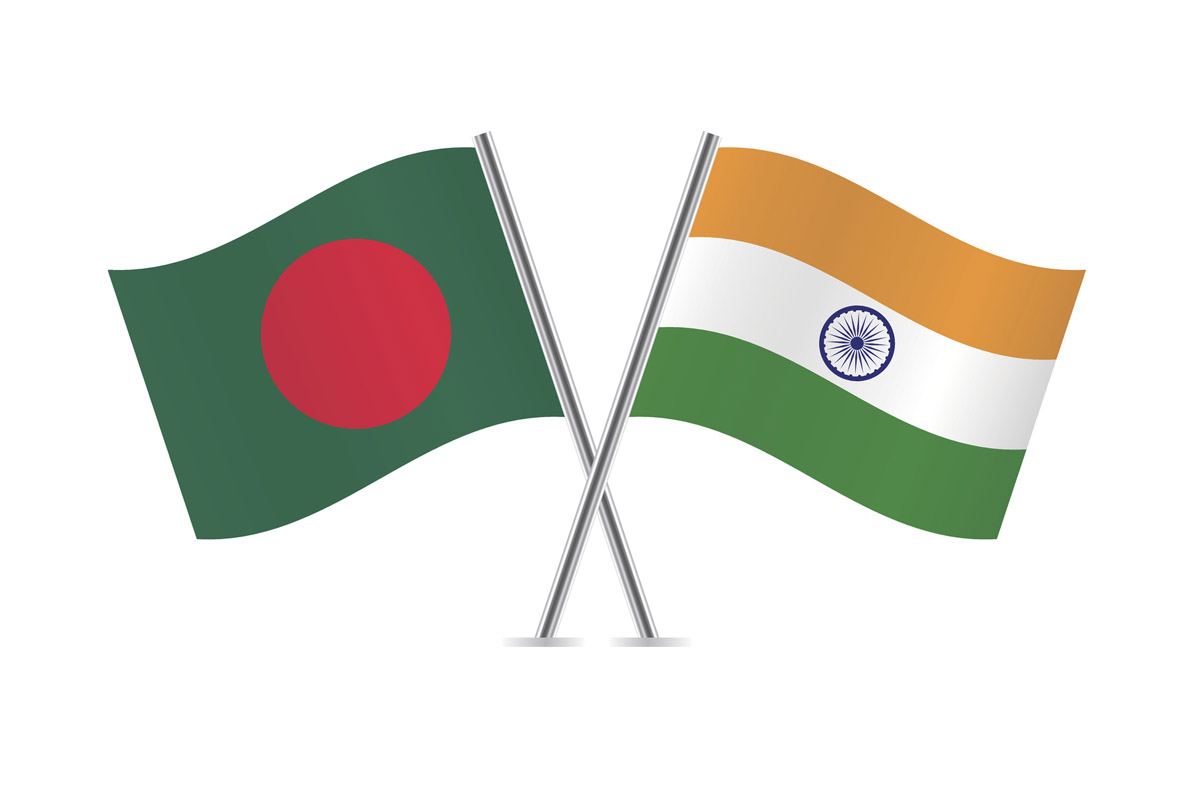BSF foils infiltration attempt
The Border Security Force (BSF) intercepted 10 Bangladeshi nationals along the Indo-Bangladesh border under the North Bengal Frontier, foiling an infiltration attempt.
India’s strategic interests in South Asia have always been intricately linked with its relationship with Bangladesh. Over the past 15 years, the India-Bangladesh partnership flourished under Prime Minister Sheikh Hasina’s leadership.

representational image (iStock)
India’s strategic interests in South Asia have always been intricately linked with its relationship with Bangladesh. Over the past 15 years, the India-Bangladesh partnership flourished under Prime Minister Sheikh Hasina’s leadership. However, recent political shifts in Bangladesh have created new challenges for India, exposing vulnerabilities in its foreign policy approach and necessitating a recalibration of its strategy. The fall of the Hasina government and the unexpected rise of a student-led protest movement that ousted her have taken India by surprise.
India’s inability to gauge the depth of public dissatisfaction with Sheikh Hasina’s authoritarian governance, economic struggles, and perceived proximity to India highlights a crucial misstep in its diplomatic outreach. The simmering resentment among the Bangladeshi populace was inflamed by statements from Indian political and military leaders that were seen as derogatory by many in Bangladesh, exacerbating anti-India sentiments. As Bangladesh navigates this period of political transition, the prospect of an unfriendly government coming to power poses a significant threat to India’s security. The Bangladesh Nationalist Party (BNP), which has a history of accommodating fundamentalist elements and anti-India insurgents, could once again become a conduit for external actors like Pakistan to destabilise India’s eastern borders.
Advertisement
The potential for Chinese influence to grow in Bangladesh, particularly through military and economic channels, further complicates the security landscape. China’s long-standing goal of establishing a foothold in Bangladesh could lead to a strategic encirclement of India, undermining its regional dominance. Moreover, the fate of the Hindu minority in Bangla – desh remains a sensitive issue for India. While there has been no state-sponsored persecution, sporadic attacks against Hindus during periods of political unrest cannot be ignored. Ensuring the protection of minority communities in Bangladesh must be a priority for India, as any escalation in violence could have serious repercussions for bilateral relations and India’s broader regional strategy. To safeguard its interests, India must act swiftly and decisively.
Advertisement
The upcoming BIMSTEC summit offers a crucial opportunity for India to engage with the interim government in Bangladesh and re-establish diplomatic ties. Prime Minister Narendra Modi’s outreach to the Bangladeshi public, coupled with a robust economic package and renewed efforts to resolve the Teesta River water-sharing dispute, could help rebuild trust. Military cooperation should also be enhanced, recognising the pivotal role of the Bangladesh Army in the country’s political landscape. Furthermore, India must adopt a more nuanced approach to its public messaging. Ideological rhetoric that alienates neighbouring countries can no longer be afforded.
India must demonstrate that it respects Bangladesh’s sovereignty and is committed to a partnership based on mutual benefit, not dominance. Regaining the confidence of the Bangladeshi people is crucial for India’s national security. This period of political uncertainty in Bangladesh presents both risks and opportunities. By leveraging diplomacy, economic cooperation, and strategic patience, India can ensure that its neighbour remains a reliable partner in a region where external powers are increasingly vying for influence
Advertisement